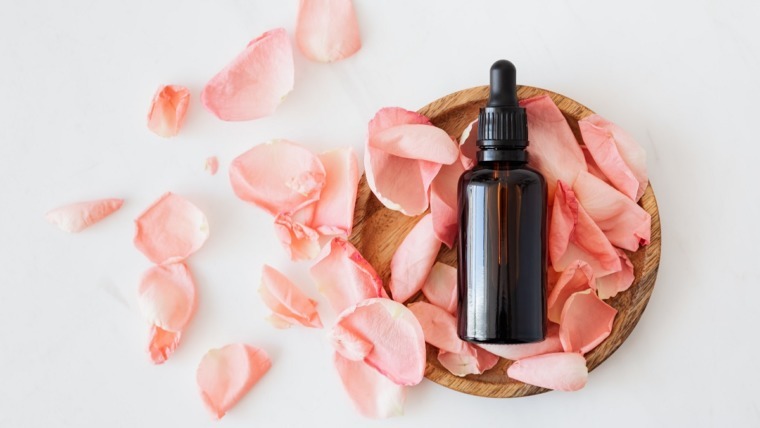
Collagen… Connecting Beauty To Health
Written by Connie Rogers
Great skin has a lot to do with our diet. This includes what we eat, the general well-being of our digestive system, and the amount of stress we allow in a day. If metabolism is sluggish, premature ageing isn’t far behind. Some symptoms of Metabolic Disturbances are loss of collagen; increased wrinkles; thin, less elastic skin; skin rashes; and dry skin.
A wrinkle very simply put, is caused by the reduction of collagen, lack of exercise, dehydration, toxic exposures, and limited oxygen.
How Collagen Is Lost
*An abundance of sun exposure, at the hottest part of the day, reduces collagen production and negatively affects the immune system. If you’re one that regards a tanned complexion as a healthy complexion, it may be time to stop. I believe in 15 minutes of absorbing vitamin D from sun exposure. Still, it’s never a good idea to get a sunburn. Sun damage equals dehydration and skin damage.
There can be scarring from repeated inflammation caused by too much sun exposure. The dermis can lose elasticity and becomes weak. If water intake is insufficient, collagen is also.
* “Metabolic diseases, such as diabetes, lead to extensive skin damage where collagen synthesis is decreased. Diabetic skin has severe connective tissue deficits and is prone to bruising.”
*Side-effects from addictions to alcohol, caffeine, and smoking cigarettes, robs the skin of oxygen, essential nutrients, and can leave the skin dry and lifeless. “It’s ‘blood-slugging’ where the red blood cells clump together, causing the small blood vessels to plug up, starve the tissues of oxygen, and cause cell death.” So, we can safely say, addictive behaviours cause loss of collagen and diminish the skin’s natural healthy glow.
*Wheat and gluten are found to be troublesome in the skin, gut, brain, and metabolic health. “Telomere length and chronic inflammation are considered markers for biological ageing. Gluten can be responsible for telomere shortening, and inflammation resulting in defective tissue regeneration.” “Studies found, celiac disease should be investigated to all that have undifferentiated connective tissue disease."
*In the U.S., we need to take a serious look at stress levels and the obesity epidemic. Obesity is responsible for changes in skin barrier function, sebaceous glands and sebum production, sweat glands, lymphatics, collagen structure and function. Obesity is also implicated in a wide spectrum of dermatologic diseases. Moreover, obesity is connected to poor immunity.
*Stress keeps our skin toxic and starves it of oxygen. Not only does stress stand in the way of the skin’s ability to repair itself, but studies reveal high cortisol levels are found to increase DNA damage and interfere with DNA repair. Stress can hide in every fiber of our being. Warning signals may include lupus, fibromyalgia, and acne rosacea, where collagen structure changes.
* Poor immunity can disrupt and may chemically destroy collagen. As you can see, improving immunity, diet, and maintaining a fit body, are the best and most effective ways to protect against the loss of collagen and elastin in the skin.
Foods That Feed Collagen Levels
Collagen is classified as part of our body's connective tissue, and studies show, connective tissue cells bind to collagen.” To strengthen connective tissue cells, it’s time to eat colour! There are also sun-protective properties in consuming antioxidants found in colourful foods.
Anthocyanidins are the colour pigments in veggies and fruits such as spinach, raspberries, blueberries, blackberries, and cherries. Our skin thrives on these phytonutrients that play a positive role in immune function. “In the skin, phytonutrients are designed to help collagen fibres link together in a way that strengthens the connective tissue matrix.”
Spinach is rich in vitamin E and bioflavonoids; it protects our skin, and boost collagen levels making it a great go-to skin healthy food.
Apples are a signature food for great skin. Organic apples are high in vitamin C, which also helps boost collagen levels. Good fats such as avocados have antioxidant and DNA protective effects that help fight premature ageing of our skin.
Topicals Used To Improve Collagen Levels
- “The retinoid family comprises vitamin A (retinol) and its natural derivatives such as retinoic acid and retinyl esters.” “Retinoids were introduced into the treatment of dermatoses including photo-aging more than two decades ago. Retinol derivatives have been developed in order to improve the chemical stability of retinol.” “Derivatives such as retinyl acetate, have been widely used in cosmetic products instead of retinol.”
"Findings indicate that ROL treatment stimulates the synthesis of pro-collagen, which is processed into mature collagen in aged human skin, leaving one to become hopeful that retinoids improve premature ageing. These treatments help the skin retain hydration, epidermal thickness, and increases collagen production, most likely responsible for wrinkle effacement.”
- A topical application of curcumin accelerates wound healing, modulates collagen levels, and has antioxidant affects.
- In terms of collagen synthesis, topical application of antioxidants and peptides provide both immediate and long-term improvements in the appearance of fine and coarse wrinkles of the face, décolleté, and hands.
Collagen… Connecting Beauty To Health Collagen… Connecting Beauty To Health Collagen… Connecting Beauty To Health Collagen… Connecting Beauty To Health Collagen… Connecting Beauty To Health
Collagen… Connecting Collagen… Connecting Collagen… Connecting Collagen… Connecting Collagen… Connecting




1 Comment